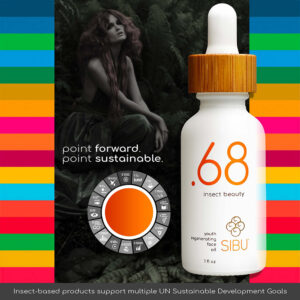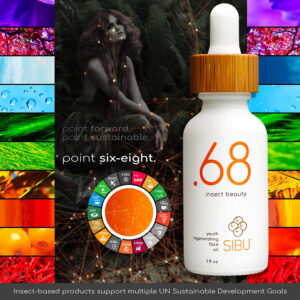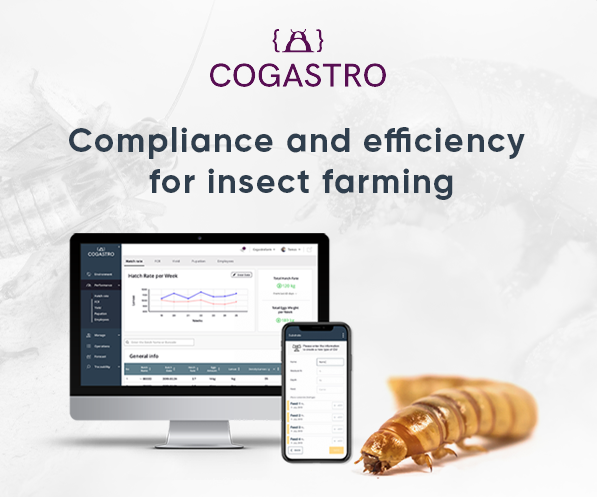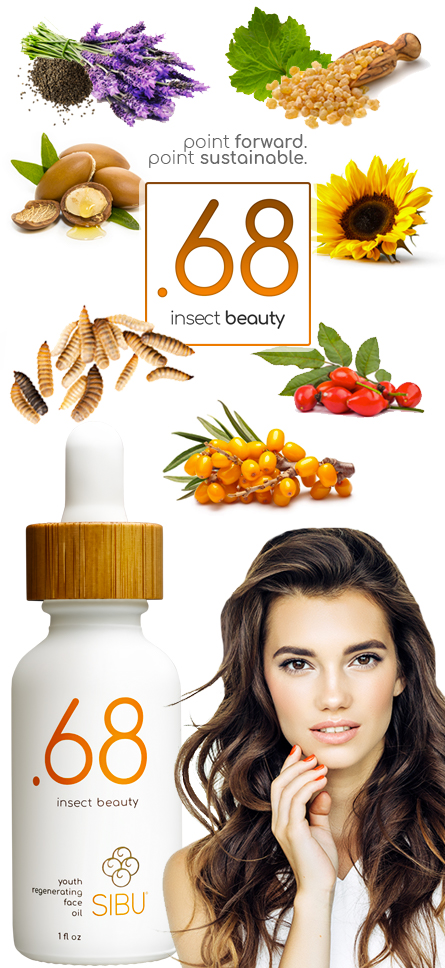With COP26 climate summit a major focus around the world right now, we thought it’d be valuable to share how Point68 and the insect industry in general is supporting UN Sustainable Development Goals. Few industries make as much of an impact, especially in the developing world, as farming insects!
1 No Poverty
Insect farming has been demonstrated to provide economic opportunities for thousands of rural smallholder farmers in the developing world, providing a sense of responsibility and meaning along with improved income. As the industry grows, it will continue to generate improved living standards and increases in the income of all those working in the sector, especially in the developing world and emerging markets where the climate tends to be ideal and benefits are most acutely felt.
2 Zero Hunger
Insects are a superfood, high in protein, vitamins, minerals, omega fatty acids, and prebiotic fiber. Our product uses only the insect oil, leaving the defatted protein usable for food and feed in other products. The fertilizer from our insects is also used for growing organic fruits and vegetables which are sold at an affordable price to the local community.
3 Good Health & Well-Being
We support clean-beauty organic skincare, improving health and well-being while inspiring greater confidence in one’s self. Self-care is one of the most important factors in mental health, and our products are effective on skin with the added benefit of feeling good about the impact we make on the planet.
5 Gender Equality
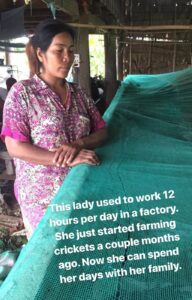 Insect farming and production provides equal opportunity for men and women, regardless of age, and in the rural developing world women are often the greatest beneficiaries of smallholder insect farming, as they are able to earn income from insects at their home farm while also able to take care of their families. Point68 youth regenerating face oil is also usable by both women and men, and is formulated for health across all skin types.
Insect farming and production provides equal opportunity for men and women, regardless of age, and in the rural developing world women are often the greatest beneficiaries of smallholder insect farming, as they are able to earn income from insects at their home farm while also able to take care of their families. Point68 youth regenerating face oil is also usable by both women and men, and is formulated for health across all skin types.
8 Decent Work & Economic Growth
Insect farming and production in the developing world directly impacts local economies. One single large-scale soldier grub facility such as those Point68 purchases our grubs from, can provide hundreds of jobs to local laborers.
9 Industry, Innovation, & Infrastructure
Emerging markets need sustainable industry which provides jobs for people not robots, and insect farming with its myriad by-products is innovating the supply chain from upcycling organic food waste, to the production of animal feed, human food, organic fertilizer, cooking oil, cosmetics, and biodegradable packaging.
11 Sustainable Cities & Communities
Food waste is a trillion-dollar problem affecting more than 1/3 of the world’s food supply and releasing tons of co2 into the atmosphere. Insect farming, from large-scale facilities to in-home counter-top micro-farms, provides greener solutions in urban environments and impactful education in the home for families to better understand and increase awareness of how personal habits impact the local community and broader planet as a whole.
12 Responsible Consumption & Production
Insect-based products support most of the SDG’s while also being verifiably sustainable, as the insects upcycle food waste into valuable by-products, including the oil at the foundation of Point68’s formula. Additionally, our packaging is recyclable and made from recycled materials and inks.
13 Climate Action
Every component of the insect supply chain is bringing about positive impacts on climate, from inputs to outputs. Cleaning food waste which would otherwise rot in a landfill, producing more sustainable animal feeds, human foods, pet food, cosmetics, organic natural fertilizer, and biodegradable products all directly lead to a cleaner and greener planet.
14 Life Below Water
 Our oceans are dangerously overfished and entire ecosystems are being destroyed by commercial fishing, of which more than 70% is used for feeding the aquaculture industry and fish farms. Insect meal and oil can replace fishmeal with a completely sustainable fish feed which can achieve better feed conversion rates, eliminating the primary activity damaging our oceans.
Our oceans are dangerously overfished and entire ecosystems are being destroyed by commercial fishing, of which more than 70% is used for feeding the aquaculture industry and fish farms. Insect meal and oil can replace fishmeal with a completely sustainable fish feed which can achieve better feed conversion rates, eliminating the primary activity damaging our oceans.
15 Life On Land
Forests are being cut down at a frighteningly rapid rate to make way for soy and other commercial crops, of which the majority of what is produced ends up as animal feed for poultry and livestock. Insect meal and oil can replace soymeal with a completely sustainable protein source which can achieve better feed conversion rates, eliminating the primary activity damaging our forests and jungles.
17 Partnerships For The Goals
The insect industry was born from the necessity for more sustainable protein, and has continued to evolve into additional outputs such as organic fertilizer, chitosan for biodegradable materials and cosmetics, oils for feed, food, and cosmetics, and protein for feed and food. Insect production is also the most efficient method of removing organic food waste. Every component of the insect industry revolves around the Sustainable Development Goals, and in only a few short years has proven to be one of the most verifiably beneficial industries supporting SDG’s.
Point68 Insect Beauty – co-founded by Entovegan’s own Josh Galt – is proud to be supporting the insect industry and the many beneficiaries of insect farms and products across the globe.


